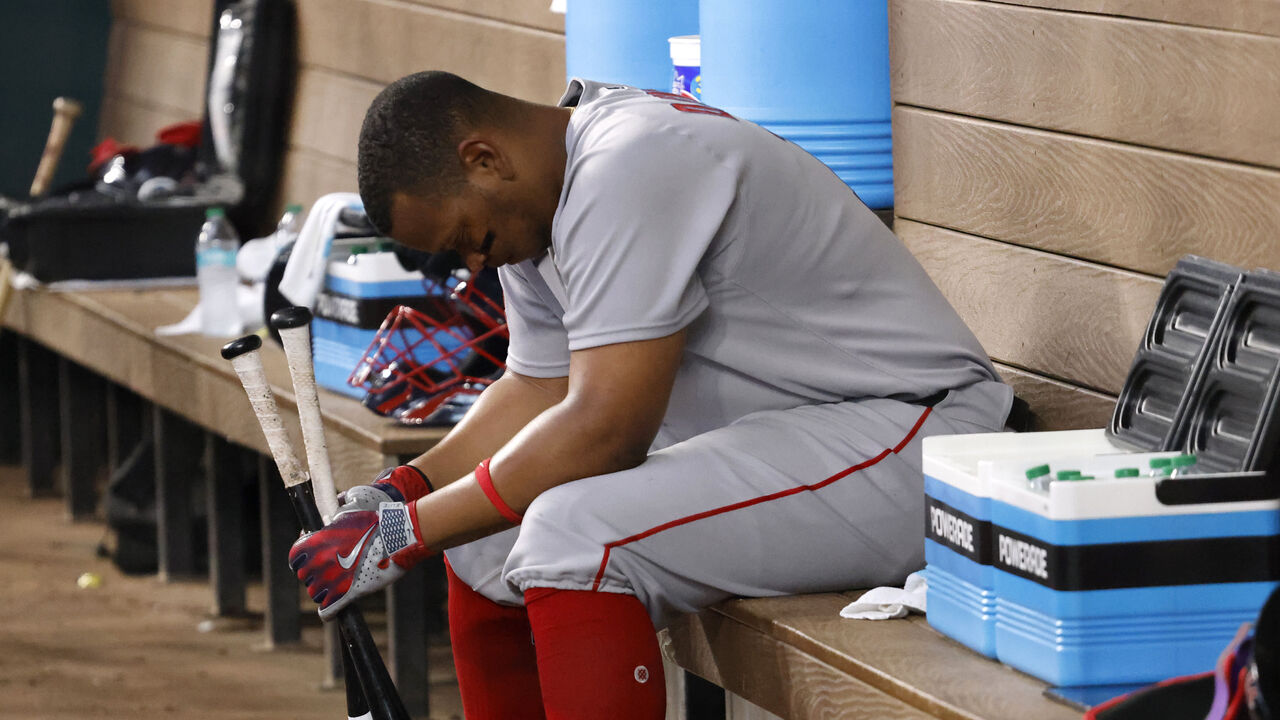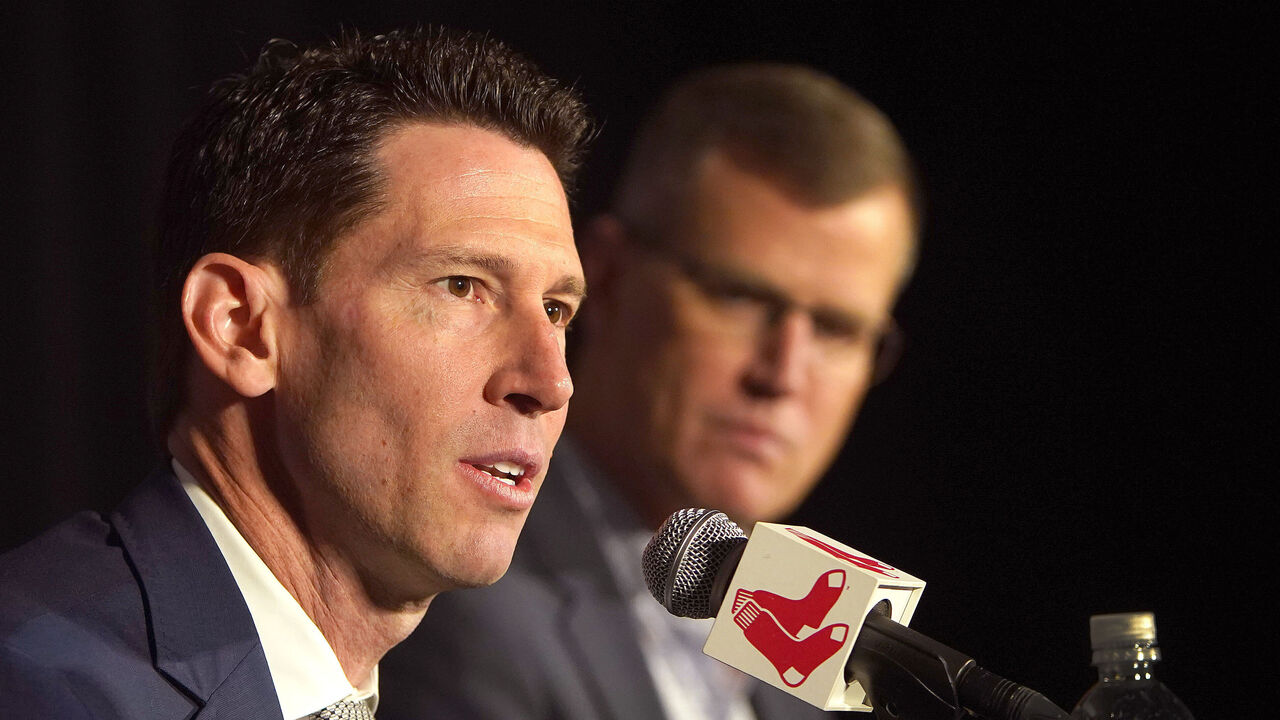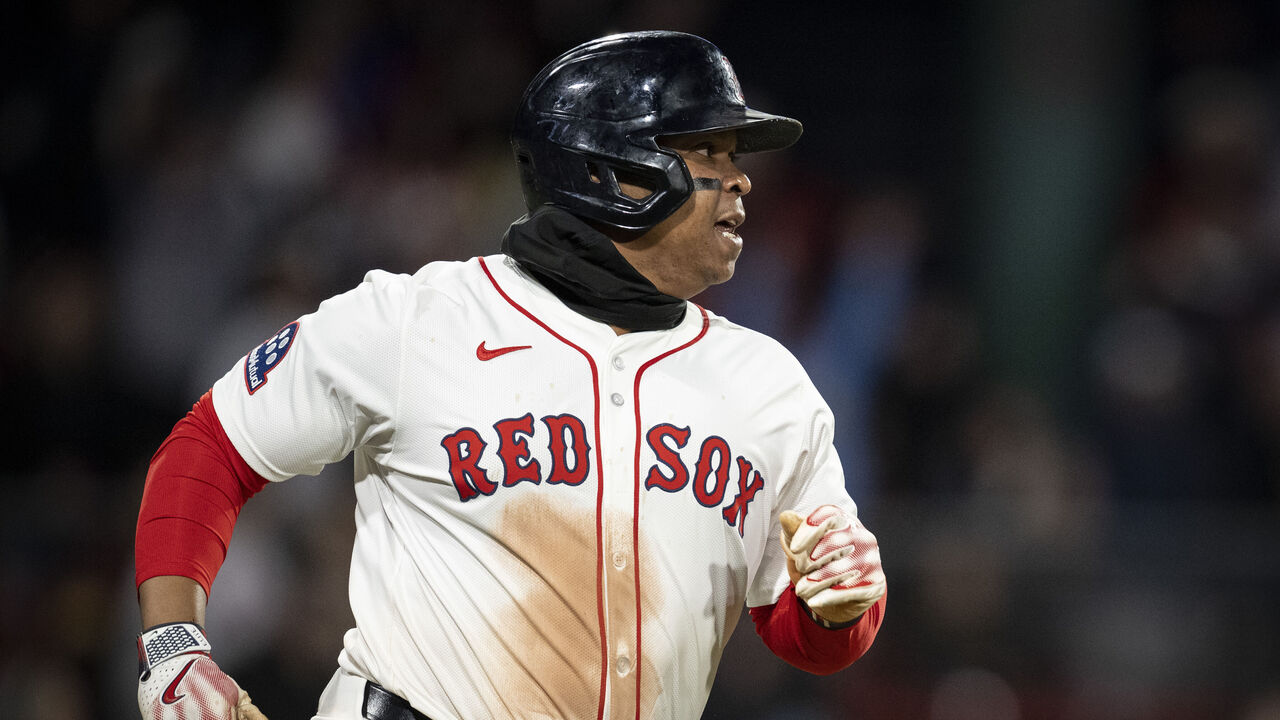The Devers dilemma: Selling an unwilling star on the inevitable
The Red Sox are facing a bizarre in-season case of dealing with a disaffected star player, a development that requires an immediate solution.
It's a future crisis management case study playing out in real time.
The facts of the case for those unfamiliar:
- Rafael Devers is Boston's highest-paid player and one of the best hitters in the majors.
- Devers is also a very poor defender.
- Devers has posted a negative Defensive Runs Saved value every year at third base, tallying -62 DRS for his career. In other words, he's cost the team 62 runs in defensive value over his career versus a league-average defender at third.
- The team signed a star bat - and defensive player - in Alex Bregman this past offseason, whose glove best fits at third.
- The signing made the club better but its optimal lineup forced Devers off third base, which he begrudgingly accepted.
- The club also enjoys a loaded farm system with position players like Kristian Campbell (already their regular second baseman), and top prospects in outfielder Roman Anthony and shortstop Marcelo Mayer on the doorstep. But the Red Sox don't have much internal help at first base.
- After moving Devers to DH, the club recently approached him to move to first base following Triston Casas' season-ending knee injury.
- Devers is refusing to play first base.
There's a lot going on.
Perhaps more than anything, Devers' pride is wounded. He spoke with reporters Thursday and was remarkably candid.
"It was the GM (Craig Breslow) I spoke with. I'm not certain what (issue) he has with me. He played ball. I like to think he knows changing positions like that isn't easy," said Devers through a team interpreter. "They put me in this situation. They told me that they didn't want me to play any other position. Now they should do their jobs, hit the market, and look for another player. ...
"They already asked me to change once. This time I don't think I can be as flexible. ... I don't feel like they stayed true to their word. They told me I was going to be playing this position, DH, and now they are going back on that."

I can understand this is a hit to Devers' ego.
It's also likely true that the club could have communicated its roster-construction planning better this offseason with a face of its franchise.
And few are suggesting it's easy to learn a position on the fly.
But the idea's only being broached now out of necessity, because the Red Sox are trying to field their best possible lineup every day, while also keeping an eye on the future given the uncertainty surrounding Casas.
With every game significant in a tight AL East, it's critical the Red Sox communicate deftly right now to gain acceptance - and lineup optimization - as quickly as possible.
How do they do that? If they haven't already, the Red Sox should start their pitch with history, which is littered with third basemen who moved across the diamond to first and who managed the transition well. And not just any players but superstars like Albert Pujols, Jim Thome, and Miguel Cabrera.
Asking Devers to do this is not some sort of historical outlier. It's actually rather common.
Boston can also sell Devers on the reality that players generally move down the defensive spectrum, not up it. At 29 next season, it's difficult to imagine Devers improving with the glove.
The Red Sox can also sell Devers on the idea that there's rarely been a better time to be an above-average first baseman. The position's sitting on its worst wRC+ number since 1914 this season.
There's also the DH penalty. It's a quantifiable fact that players perform worse offensively if they don't play a position and exclusively DH.
Finally, there's the team aspect, too.

This move is necessary in order for the Red Sox to field their best team given Casas' injury left the club vulnerable at one position where it lacks depth.
If the Red Sox are feeling less charitable, there's also the merit-based argument: Devers' play simply doesn't warrant him remaining at third base or making any demands. He's not owed anything beyond his contract.
And he's owed plenty. Devers' 10-year, $313-million deal runs through 2033. He's not sacrificing anything financially with the move.
But that doesn't appeal to emotion or ego.
While it's true the Yankees never asked the worst defensive player in DRS history - Derek Jeter - to move off shortstop, and while it's also true some clubs don't want to rock the clubhouse, there's more data and understanding of performance today, too.

What we know: If Devers remains in Boston long term, it's as a DH or first baseman. Devers is almost certainly not going back to third. So how does the team sell him on that inevitability?
The Red Sox have one final card to play: David Ortiz.
No one in Boston cares that Ortiz didn't contribute with his glove. They cared that he hit, and that the Red Sox won with him in the middle of their lineup. That cemented a legacy. And that seems worth a move across the diamond.
Travis Sawchik is theScore's senior baseball writer.